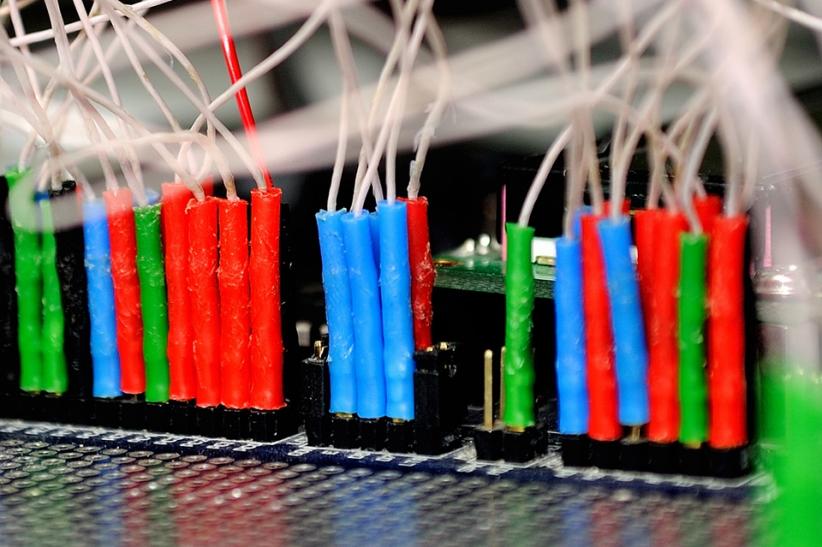A summary of three years of the activity of POB Energy Conversion and Storage
Major events since 2020.
POB Energy selected 48 projects from all applications under 3 competitions for research grants to integrate PW research teams and support them in conducting research at the highest level.
A research team from the Faculty of Power and Aeronautical Engineering of the Warsaw University of Technology worked on a method of modelling the size of the detonation cell of a mixture of biogases with oxygen, utilising machine learning. The researchers built a detonation tube into which they placed a flexible plate covered with soot. After the passage of a detonation wave, its trace is obtained on the plate surface, imaging detonation cells. The next step was to digitise this image to measure the width of the diamond-shaped detonation cell and perform statistical calculations. This aimed to obtain information about the detonation cell width under specific conditions (initial pressure of the mixture, stoichiometry coefficient of the mixture, and type of biogas, i.e. the volume ratio of the two main components of biogas, which is methane and carbon dioxide). More about the conducted research >>>
In turn, the scientists from the PW Faculty of Chemistry developed composite materials for a new generation cell, i.e. lithium-sulphur cells. “The cathode is sulphur mixed with carbon, more precisely sulphur immobilised in the carbon material. This way, we substituted expensive materials, which are difficult to obtain, with cheap sulphur. What is more, this technology allows us to obtain better performance parameters of the entire cell," says Maciej Marczewski, PhD, head of the project. More information about the project is on our website.
Two control methods are used to build control systems in power electronic systems for converting electricity. The methods utilise a cascade control structure with couplings from individual outputs of the object and regulators with coupling from the vector of the variable state of the object. What if these two concepts were combined? That is a task scientists from the Faculty of Electrical Engineering faced. More about their work >>>
Strategic activities
POB Energy announced the ENERGYEDULAB competition for grants for laboratory teaching stations, aiming to create innovative laboratory teaching stations that will allow students to receive hardware-oriented education in the field of energy conversion and storage, including access to unique equipment and instrumentation. Out of all applications, 14 were selected and received funding.
POB Energy financially supports PW’s participation in the work of associations and organisations dealing with shaping the directions of energy development in our region of the world, among other things, which gives the university a real influence on decisions (e.g. the European Commission) on the announced programmes. One such area is the hydrogen economy. Thanks to the support of POB, the Warsaw University of Technology joined Hydrogen Europe Research, associating over 140 entities. PW is one of over 250 members of the European Energy Research Alliance in the field of hydrogen fuel cells, among other things, and also belongs to the Batteries European Partnership Association.
POB co-finances the participation of PhD students in the "Destiny" programme, which is implemented at the Faculty of Chemistry of the Warsaw University of Technology as part of the actions of the Horizon 2020 Marie Skłodowska Curie COFUND PhD Programme. This is the first EU-funded project of co-conducted international doctoral studies at PW. The partners in the project are the University of Oxford, University of Cambridge, College de France, BASF, SAFT, Umicore, and PKN Orlen, among others.


